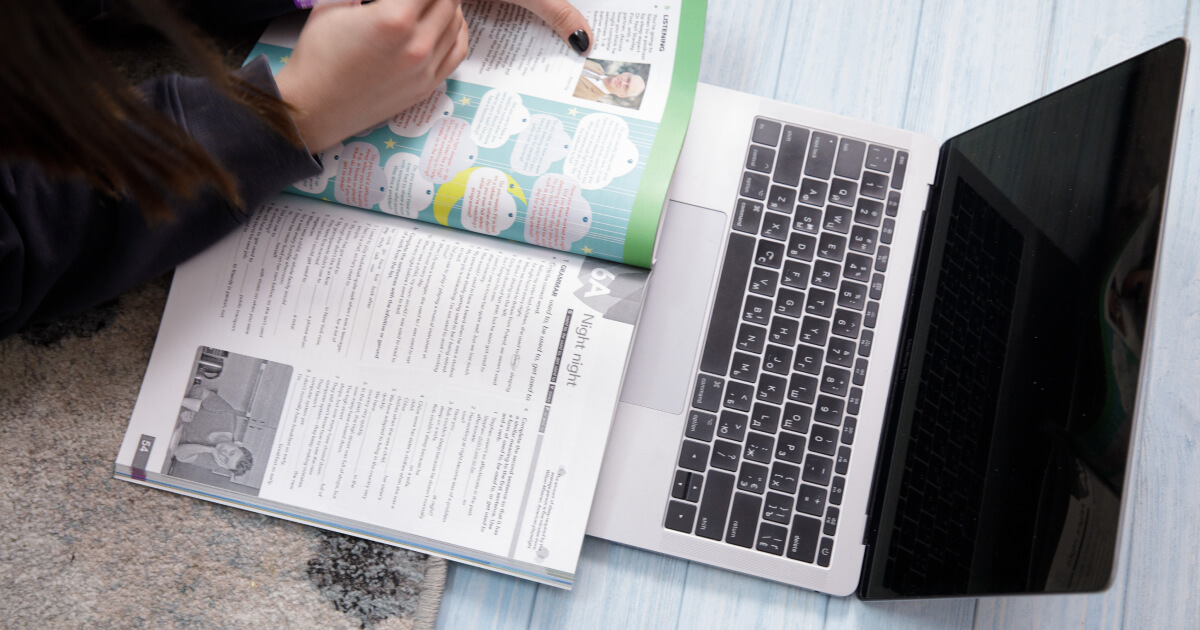
How to Promote Emotional Intelligence in the lessons of English
- Teaching qualifications
- Tips & Strategies
- Methodology

20.02.2024
Passing the IELTS reading section is more than a challenging task. However, without proper and thorough preparation, it is almost impossible.
In this article, we are going to take a look at the most common issues IELTS takers face and ideas on how to solve these problems.

Teach IELTS Reading with ease!
Prepare your students with usWithin the IELTS Reading Comprehension Test, students are given a series of extracts from various publications, including books, periodicals, and newspapers.
A series of comprehension, vocabulary, and identification of major concepts and supporting details-focused questions follow these sections.
Moreover, apart from being contextually challenging, passing IELTS reading is also a matter of repetitive preparation which builds a strong habit of dealing with certain types of tasks.
Students who want to succeed in IELTS reading should be familiar with several sorts of questions, which include multiple choice, matching headers, sentence completion, etc.
Typical mistakes in IELTS writing
The question is why students are so afraid of the IELTS reading. What is more, why do some of them fail despite their good reading skills?
Here are some of the most challenging aspects of this endeavor:

Tips to teaching IELTS writing!
Of course, any success story consists of a carefully planned strategy. IELTS reading is not an exception.
Here are some of the most essential strategies you have to share with your students:
During such a time-constrained exam as IELTS, the ability to skim and scan is crucial.
When you skim a paragraph, you swiftly review it to obtain a basic understanding of its content, but when you scan it, you look for particular information.
To teach your students these strategies, you can start by assigning them to read a certain text within a time limit. The more students practice in this way, the better they become.
Moreover, they tend to spend less time choosing the correct answers because, unlike their peers who may read the same text over and over again from A to Z looking for a certain fact, students who are aware of skimming and scanning will not make this time-consuming mistake.
While scanning and skimming are crucial time-saving strategies, your responsibility is also to help students find a balance between comprehension and speed. Being quick enough is great but it requires practice not to lose a certain level of understanding of what you read for the sake of producing instant answers.
This is another common mistake that your students should overcome.

IELTS Reading heavily relies on keywords. They frequently hold the key to determining the right responses.
Make it your students’ habit to highlight or underline the key words as they read. The key words have to contain the most important data that can potentially be the answer to the questions.
Again, this is the strategy that prevents a test taker from rereading the whole text multiple times to find a certain fact or passage.
Highlighted keywords make it easy to refresh the content of the text quickly and effectively and sometimes correctly highlighted words include the answer itself.
This practice may seem vague at the beginning but it eventually becomes an integral part of completing any reading assignment.
Approach IELTS writing wisely
Another crucial part of successful reading is looking through the questions first.
It may look weird to students but once they start practicing, they will get used to it.
Moreover, they will see how easy it is to know exactly what you are looking for in a text even before you start reading it.
Questions in the IELTS Reading section are frequently paraphrased meaning that absolutely different words are used to express the very same idea.
Therefore, your task is to draw students’ attention to the fact that there is no sense in looking for the exact same formulations. What is more, if they do find such a formulation, chances are this is the incorrect answer.
IELTS Reading is not about looking for sentences with similar words but about deep and conscious comprehension.

Comprehending the major concepts and identifying specific details inside a paragraph requires an understanding of its structure.
Given that they frequently provide important information, students should focus on the starting and closing lines of paragraphs.
Additionally, they have to be able to recognize words and phrases indicating that concepts are shifting. Students can save time and prevent confusion by precisely answering questions and rapidly navigating through the material by actively analyzing the passage structure.
Therefore, don’t underestimate working on the structures and patterns with your students. Yes, it might not look like reading per se, however, practicing structure analysis increases the effectiveness of it immensely.
Learn more about IELTS structure
An educated guess is better than no answer at all! Repeat that to your students constantly.
Sure, everyone comes from a different educational background. Therefore, if the person comes from a very strict classroom, they tend to be demanding and very anxious about their performance.
However, not knowing the correct answer is not the end of the world and it is more than OK. So, a simple guess has never hurt anyone. At the same time, leaving a blank space instead of literally any answer is a problem as this strategy automatically leads to worse results.
True, some people need time to learn how to make an educated guess and even allow themselves to make it. But make sure you have at least had this talk with your students.

To sum up, preparing a successful student requires thorough teacher training. If you want to improve your teaching proficiency and get more tips on how to prepare your students for all possible exams, join Grade University! We are all very happy to help you.
Is making an educated guess a good strategy?
Arina Kravchenko
Author
Teacher of General English & IELTS
Comments
Leave your comment